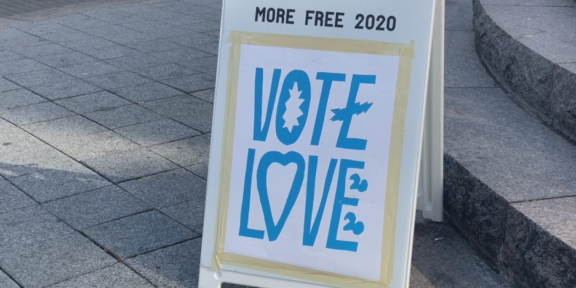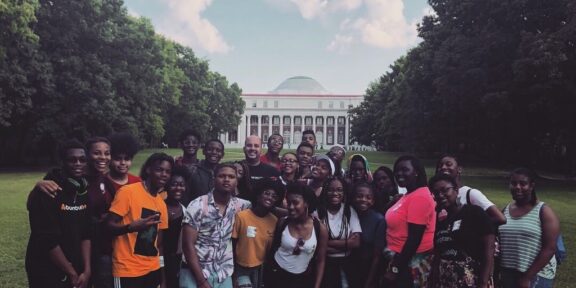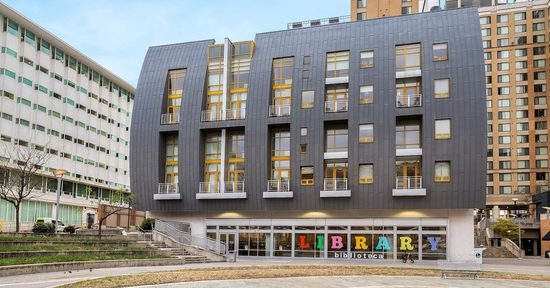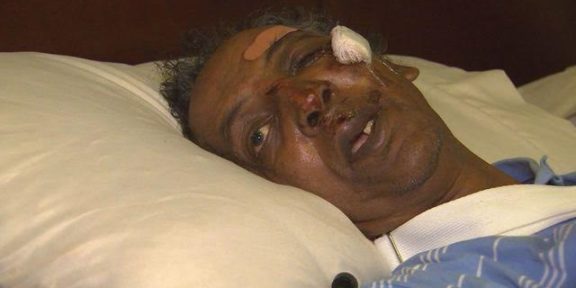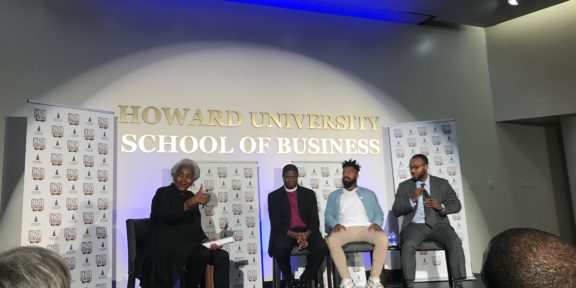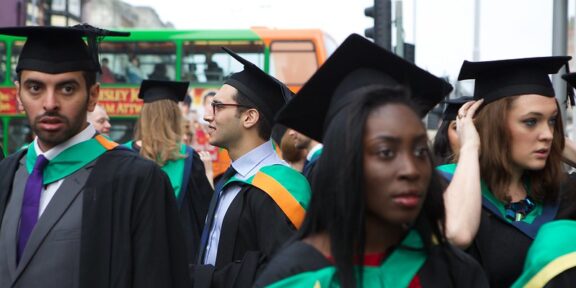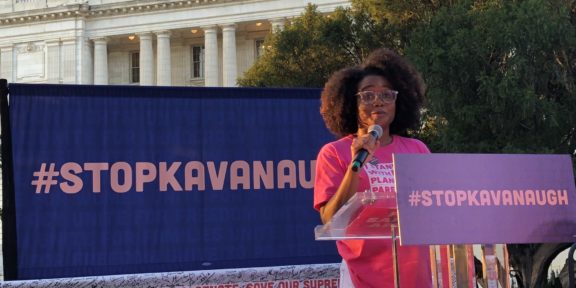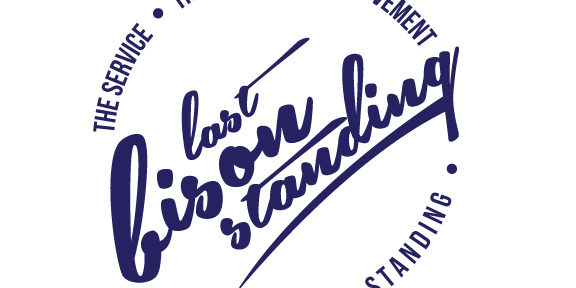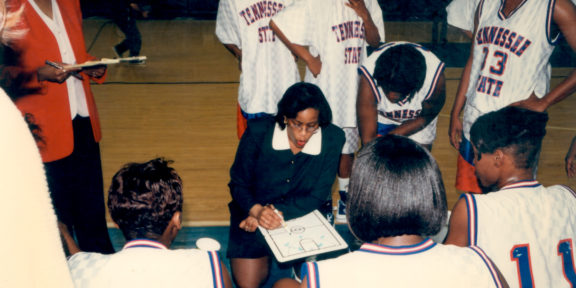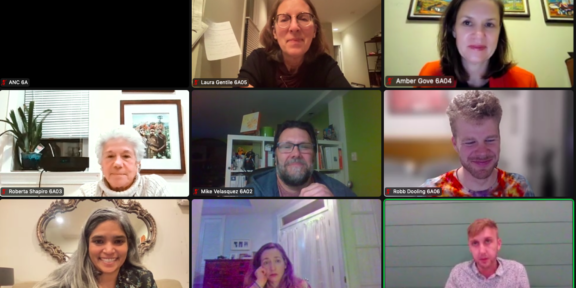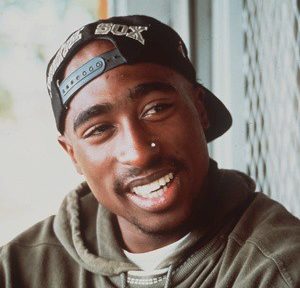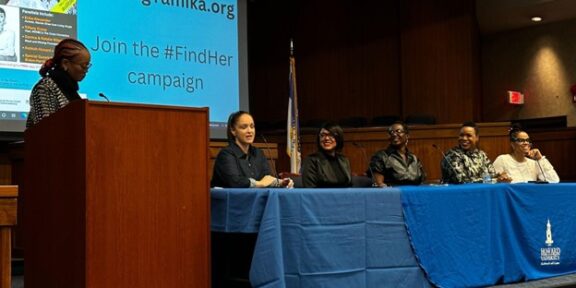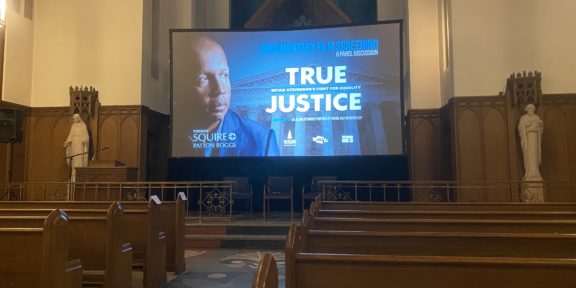Since its debut last month, ‘The Burial of Kojo’ has streamed and projected on thousands of screens throughout the nation. On Friday, Apr. 5, as a part of its national tour, ARRAY Now and the National Museum of African American History and Culture collaborated to host a free showing in the museum’s Oprah Winfrey Theater, followed by discussion with filmmaker and musician, Samuel “Blitz The Ambassador” Bazawule.
The conversation opened with an explanation of the inspiration behind the film storyline that tells a tale of two brothers from the point-of-view of a young girl who transports to magical lands that exist between life and death.
“These stories are an alchemation of my grandmother’s stories,” Bazawule stated before the packed 320-seat room. “They mixed all these elements and ideas in ways that you could never tell where the reality was and where the subconscious had taken over.”
Spiritual realism was a major theme in the film. This element was represented in the constant reference to birds, water, life, death, healing, and transition.
In addition, the narrative gave modest attention to the socio-economic power struggle between foreigners and natives in present-day Africa. While in his homeland of Ghana, where the film is set, Bazawule noted the mining industry that is largely controlled by the Chinese and has been the cause of death for several young people who went searching for gold. For Bazawule, this highlight was evidence of poor institutional maintenance in Ghana.
“It’s really about the weak institutions that make it possible for these very unequal relationships to exist,” Bazawule said.
While many films cost millions to produce, Bazawule was able to complete the award-winning project on an unusually low monetary budget. After being rejected by investors due to lack of interest in an African film that did not “revolve around narrow clichés of war and disease,” self-funding was the only remaining option.
Through crowdfunding, Bazawule raised $78K toward production expenses.
Other means of assistance were largely based on the generosity of the African community. Bazawale calls this type of currency “the African paradigm,” where African people offer resources based on an intangible value system. Though they did not have much, he explained, people knew that The Burial of Kojo was an important story and they were willing to do whatever it took to bring it to fruition.
“There’s an African paradigm that’s very specific and we trade in different kinds of currency. So, respect is a currency. Trust is a currency. Those things go a long way,” Bazawule said.
With community investment, Bazawule successfully casted committed actors and actresses and shot the film in a span of 23 days. Other notable features include the infamous mine, that he and his team dug themselves, and the score music, that Bazawule composed in five days while on visa in Paris.
Just like the unpredictable funding process, some scenes that portrayed great performance were unplanned. There are forces beyond what the eye can perceive, Bazawule noted, that worked in his favor.
“That’s how we made the Burial of Kojo. It was fully submitting to the process. Whether it was the writing, whether it was where the camera goes, it’s only informed by what I call genetic memory. And that thing inside of you knows. It knows and you just have to surrender to it and you have to leave a seat for your ancestors to do the work,” Bazawule said.
The afro-supernatural tale was released on Netflix on March 31 after its addition to ARRAY Now, an independent film collective dedicated to the distribution of pictures by people of color and women, founded by film director Ava Duvernay. The Burial of Kojo is a 2019 Pan African Film Festival (PAFF) Official Selection and 2018 Urbanworld Film Festival Best Narrative Feature Winner.
“The goal [in filmmaking and music] has always been the same⏤representation,” Bazawule said. “And making sure that [Africans] remember that we were here. And we had a viewpoint, and that viewpoint was ours, and we contributed to the world.”


